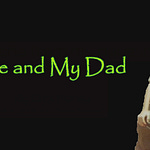When I returned to Da Nang, I headed straight to my hootch to see if it was still there, or if someone else had claimed it, and then I would have to find a new home.
But when I arrived, it was like nothing had changed at all. I was still the only occupant. My things were arranged exactly as I had left them a month earlier.
It didn’t take long to unload my duffel bag and make this place my home again. Soon I was back to my familiar routine of taking care of people, stocking supplies, and helping to keep the aid station cleaned up and ready for action.
It was good to feel useful again.
I wrote letters to my dad and prayed for him constantly.
But my focus was once again on my work in Vietnam even though some of that work was going to change.
A Different Kind of Battle
Our doctor decided he wanted to do something to support the Army’s efforts in a different kind of fight—the one against addiction.
If you’re not familiar with that time period, the Army had a serious public relations problem. Young men were drafted, sent off to war, and if they made it home in one piece, too many of them returned as drug addicts.
It wasn’t hard to understand why. In Vietnam, drugs were cheap. An American soldier could easily get high grade heroin (90-95% pure) for $2-$5 a dose. In the states, a lower-quality dose would cost $30-$50.
And marijuana was very easy to obtain from local villagers and cost just a few cents for a joint, bags less that $2.
That led to what officials called an “epidemic of addiction” among U.S. troops. One Pentagon study estimated that 10-20% of soldiers were habitual users.
So the Army set up a program where addicted soldiers could turn themselves in without punishment. The idea was to help them get clean before they were sent home. It was an attempt to right a problem that was destroying lives.
Our doctor decided our unit would take part in that effort. He arranged for a small building to be set aside as a rehab center for soldiers who volunteered for detox before returning to the States.
There was just one problem: we had no supplies.
We had beds, but not much else. No hospital equipment, not the right medications to help the men going through withdrawals, nothing for 24-hour care.
So the doctor decided we would drive to the hospital in Da Nang to “see what we could scrounge up.”
Scrounging, Not Stealing
Now, Doc didn’t tell me to steal anything—but I got the impression I was supposed to look around and take whatever wasn’t being used.
I walked around the hospital on my own and found several rooms that had supplies and no one was around guarding those supplies.
It would have been easy to just walk in and take a few items for our noble project.
But “scrounging” seemed an awful lot like “stealing.”
It didn’t seem like something a Christian should do, even for a good cause. So instead, I decided to talk to someone in charge.
I found an officer who had authority over the hospital’s equipment and explained what we were trying to do.
He was so impressed with what we were trying to do that he led me to a storage area full of supplies. He told me to take whatever I needed—and even offered additional help to equip our rehab center.
When we got back to base, we began setting up our small unit. Before long, we were ready to receive our first patients.
Withdrawals
The soldiers assigned to us had volunteered for rehab. Our job was to help them through withdrawal as they sought to clean up their systems.
Withdrawal was a tough experience for each one of those men who were seeking to end their addiction.
Marijuana withdrawal wasn’t dangerous but it was uncomfortable. Common symptoms included irritability, anger, anxiety, insomnia, decreased appetite, night sweats, vivid dreams, and headaches. The symptoms began 1-3 days after stopping, peaked sometime between days 3-7, and could linger for 2-4 weeks.
We were there to help them through those struggles.
Cocaine withdrawal was more serious even though it was primarily psychological. Symptoms included intense fatigue, depression, increased sleep, strong cravings, irritability, and even suicidal thoughts. Symptoms began within hours of stopping, peaked in 1-3 days, and usually got better after about one week.
Sometimes our patients would beg us to help them get through the pains of the moment.
Heroin withdrawal was very painful but usually not life-threatening. Symptoms included muscle and bone pain, nausea, vomiting, diarrhea, sweats, chills, goosebumps, dilated pupils, anxiety, insomnia and intense cravings.
I’ll never forget the fear in some of those young men’s eyes as they were trapped between pain and panic, trying to fight their way back to sobriety.
We gave them medications, monitored their vitals, talked with them, and stayed with them through the worst of it.
Since we didn’t have the staff for 24-hour coverage, we locked the building at night to keep them safe—and to prevent sneaking out to get drugs or friends from sneaking in bringing drugs.
It sounds harsh, but it was necessary.
In fact, once we had a patient who did not show any withdrawal symptoms. We couldn’t figure out why, until we discovered he had a friend who crawled under the building at night and passed him drugs through the floorboards.
Most of the time, though, it was just long, hard work helping those men through their suffering. I have no idea how many stayed clean after returning home. We just played our small part in their recovery before sending them on their way.
Another Emergency Leave
I was busy doing my work as a medic when I was called into headquarters. They informed me that my dad had died.
That caught me by surprise. I thought Dad was just having a routine surgery and I would be able to see him and talk with him again.
That wasn’t the case.
Headquarters told me I was being granted emergency leave again.
Because I was so close to the end of my tour, they told me not to plan on returning to Vietnam. I was to pack everything I owned and go home.
I gathered what I could and stuffed it into my duffel bag. Then I boarded the plane, and flew back to the United States, knowing that this time I would not be returning to Vietnam.
LESSONS FROM MY DAYS IN OLIVE DRAB
When I look back on that short season before heading home, I realize I was fighting a different kind of war. Not the one with rifles and rockets, but the one inside people—the quiet battles no one sees.
Here are a few lessons that stayed with me:
1. Don’t steal—no matter how noble the reason sounds.
Right and wrong don’t change just because you’re tired or stressed or working for a good cause.
2. Show compassion.
A person wrestling with addiction doesn’t need a lecture—they need someone to sit with them during the worst hours of their life. Even if their wounds were self-inflicted, they were still someone’s son, someone’s friend, someone God loved.
3. Don’t do drugs.
I watched too many young men suffer through withdrawals to ever see drugs as anything but a trap that destroys lives.
Those days taught me that sometimes the hardest battles aren’t fought on the front lines—they’re fought in hospital rooms, locked buildings, and in the human heart.
A Blessing
Before I go, I’d like to share a blessing with you from the Old Testament.
“May the Lord bless and protect you; may the Lord’s face radiate with joy because of you; may he be gracious to you, show you his favor, and give you his peace.”
Numbers 6:24-26 (The Living Bible)
Until next time … be the reason someone smiles today








